But who would rush at a benighted man, and give him two black eyes for being blind?
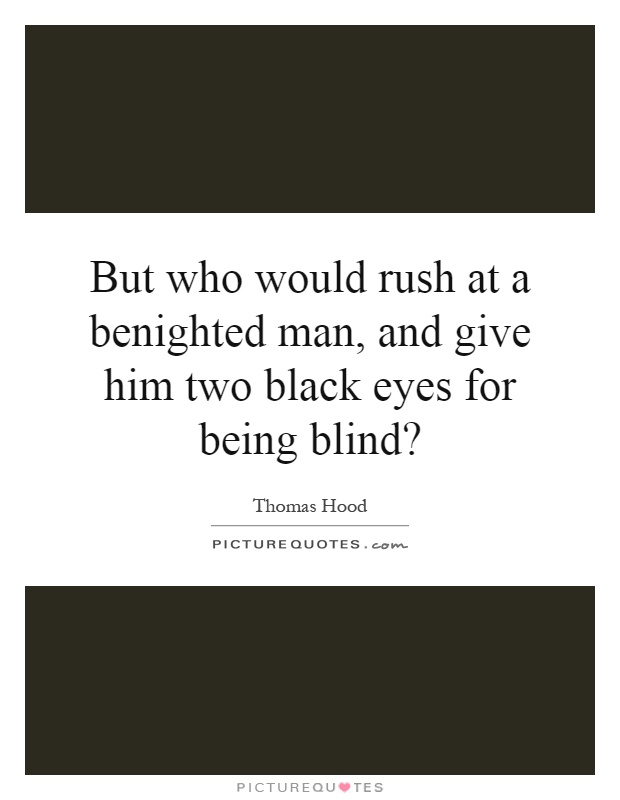
But who would rush at a benighted man, and give him two black eyes for being blind?
Thomas Hood was a renowned English poet and humorist known for his wit and satirical commentary on society. In his poem "The Song of the Shirt," Hood sheds light on the plight of the working class and the harsh conditions they faced in the industrial revolution. However, Hood's work was not limited to social commentary; he also delved into the realm of human nature and morality.The line "But who would rush at a benighted man, and give him two black eyes for being blind?" is a poignant reflection on the cruelty and absurdity of human behavior. In this context, Hood is questioning the senseless violence and injustice that often occurs in society. The image of someone attacking a blind man for his disability is a powerful metaphor for the irrationality and brutality that can exist in the world.
Hood's use of language is both evocative and thought-provoking. The word "benighted" conveys a sense of darkness and ignorance, highlighting the lack of understanding and empathy that can lead to such senseless acts of violence. The phrase "give him two black eyes" is a vivid and visceral image that emphasizes the physical harm inflicted on the blind man. By juxtaposing the idea of blindness with the act of violence, Hood forces the reader to confront the absurdity and cruelty of such behavior.
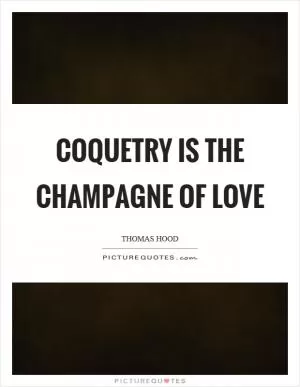

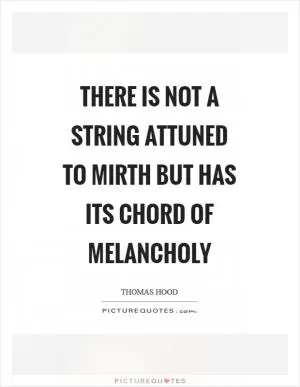


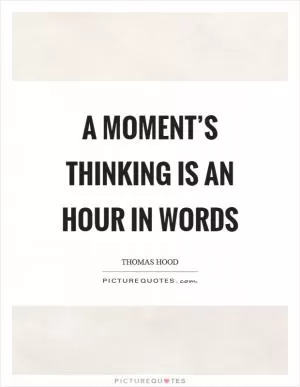
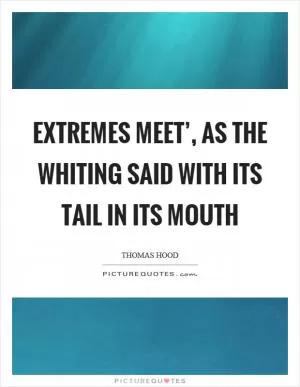


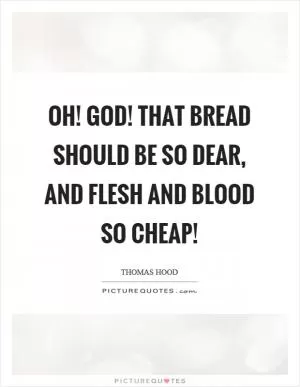
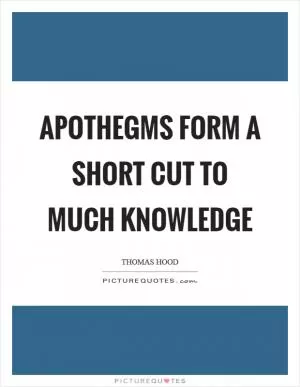
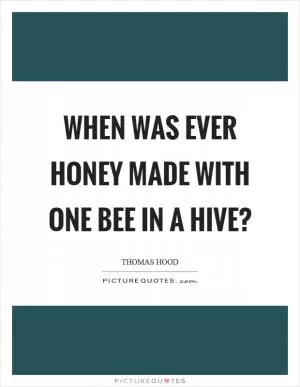
 Friendship Quotes
Friendship Quotes Love Quotes
Love Quotes Life Quotes
Life Quotes Funny Quotes
Funny Quotes Motivational Quotes
Motivational Quotes Inspirational Quotes
Inspirational Quotes